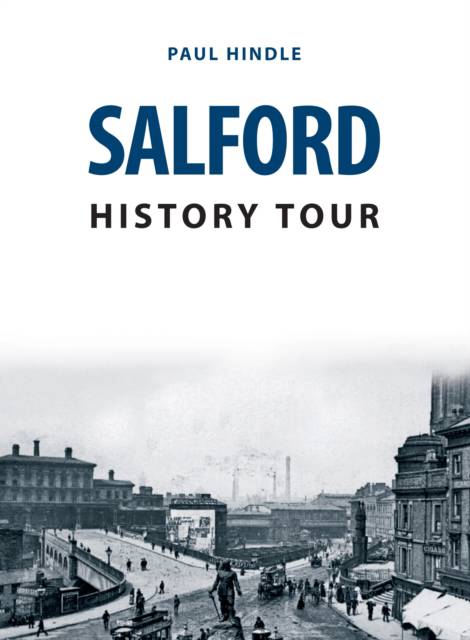
- Afhalen na 1 uur in een winkel met voorraad
- Gratis thuislevering in België vanaf € 30
- Ruim aanbod met 7 miljoen producten
- Afhalen na 1 uur in een winkel met voorraad
- Gratis thuislevering in België vanaf € 30
- Ruim aanbod met 7 miljoen producten
Zoeken
Omschrijving
Salford is often seen as the smaller twin of Manchester, its neighbour across the River Irwell. In fact, Salford was a borough long before Manchester achieved that status, but during the Industrial Revolution Manchester grew more rapidly. In the eighteenth and nineteenth centuries, the local economy was driven by the textiles industry and the town's location as a port on the Manchester Ship Canal. Although it entered a period of industrial decline in the twentieth century, Salford today is an up-and-coming area, home to Media City. Join local author Paul Hindle in as he guides readers on a fascinating walk through the town and its history. Along the route readers will be able to see how Salford has changed through the nineteenth and twentieth centuries. With the help of a handy location map, this pocket-sized guide explores some of the streets, buildings and landmarks, and discovers the well-known and hidden aspects of Salford's heritage.
Specificaties
Betrokkenen
- Auteur(s):
- Uitgeverij:
Inhoud
- Aantal bladzijden:
- 96
- Taal:
- Engels
- Reeks:
Eigenschappen
- Productcode (EAN):
- 9781445693781
- Verschijningsdatum:
- 15/04/2019
- Uitvoering:
- Paperback
- Formaat:
- Trade paperback (VS)
- Afmetingen:
- 124 mm x 168 mm
- Gewicht:
- 166 g

Alleen bij Standaard Boekhandel
+ 25 punten op je klantenkaart van Standaard Boekhandel
Beoordelingen
We publiceren alleen reviews die voldoen aan de voorwaarden voor reviews. Bekijk onze voorwaarden voor reviews.







